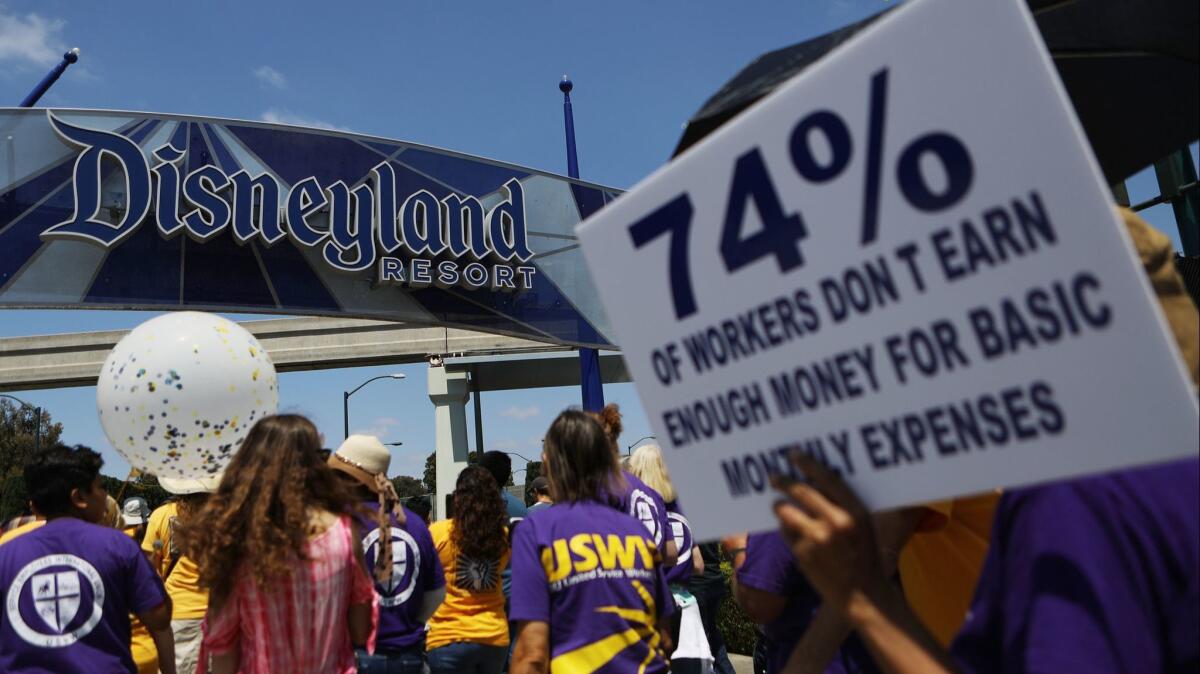Disney and other opponents of Anaheim living wage measure say it will have ‘severe consequences’

Opponents of a ballot measure to require the Disneyland Resort and some hotels in Anaheim to pay a living wage say it will have severe consequences for businesses and neighborhoods.
Opponents, including the popular resort and the city’s Chamber of Commerce, on Friday night submitted their position against the measure to appear alongside the ballot initiative at the Nov. 6 elections.
“It helps very few workers while creating severe consequences that harm EVERY Anaheim neighborhood and resident,” according to the anti-living wage argument.
For those hotel and resort workers who won’t get a raise under the measure, opponents argued the higher salaries will scare off business and force the city to cut “city funds to pay for vital services such as police, fire parks and homeless support.”
Supporters of the measure, who also submitted their argument to the city clerk’s office Friday, say the living wage, starting at $15 an hour, will help Anaheim because “if workers get paid more, they spend more, lifting the economy for everyone.”
In the pro-living wage argument, supporters also point to an Occidental College study that said many Disneyland employees don’t earn enough to pay for basic necessities, such as rent and utilities.
The Walt Disney Co. reached a contract agreement last month with four labor groups representing about 9,700 workers at the resort, agreeing to raise the minimum hourly salary of $11 to $13.25 immediately and up to $15 in January.
The ballot measure, which only targets large hospitality businesses that accept a city subsidy, would raise the minimum hourly salary to $15 for workers at large hotels and for all 30,000 workers at the Disneyland Resort. The measure would take effect 10 days after the vote is confirmed.
The supporters of the measure say the city of Anaheim is on track to give more than $600 million in tax subsidies in and around the resort over the next 20 years.
An impartial analysis of the measure by the Anaheim City Attorney’s office does not include a prediction on the financial impact of the measure on the city or its businesses if approved.
To read more about the travel and tourism industries, follow @hugomartin on Twitter.







